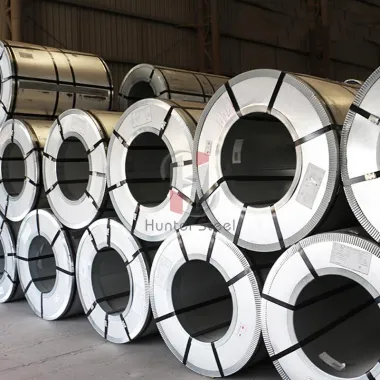FAQs | Everything You Need to Know About Automobile Steel
Automobile steel is an essential component in vehicle manufacturing, enhancing strength, safety, and longevity. Below are some frequently asked questions regarding automobile steel, along with the necessary insights:
WHAT IS AUTOMOBILE STEEL?
Automobile steel is a specialized type of steel tailored for vehicle production. It encompasses various grades and types that satisfy the automotive industry's specific needs, including high strength, excellent formability, and corrosion resistance. Typical types include high-strength low-alloy (HSLA) steel, advanced high-strength steel (AHSS), and ultra-high-strength steel (UHSS).

WHY IS STEEL USED IN AUTOMOBILES?
Steel is favored in automobiles for its remarkable strength-to-weight ratio, affordability, and versatility. It delivers the needed strength to safeguard occupants during collisions while preserving the vehicle's structural integrity. Moreover, steel can be shaped into complex designs, enhancing both aesthetics and function.
WHAT ARE THE DIFFERENT TYPES OF AUTOMOBILE STEEL?
Automobile steel is classified into several categories based on its properties and applications:
High-Strength Low-Alloy (HSLA) Steel: Renowned for its superior strength and longevity, HSLA steel is used in critical safety components such as the car's frame and chassis.
Advanced High-Strength Steel (AHSS): AHSS is utilized in structural components to enhance crash resistance and minimize vehicle weight, leading to improved fuel efficiency.
Ultra-High-Strength Steel (UHSS): UHSS is employed in areas that demand maximum strength, such as door beams and roof structures, offering exceptional protection during accidents.
Stainless Steel: Commonly used for exhaust systems and decorative trim, stainless steel provides excellent corrosion resistance and a polished appearance.
HOW DOES STEEL CONTRIBUTE TO VEHICLE SAFETY?
Steel is crucial for vehicle safety because it forms a robust structure capable of absorbing and dispersing energy during a crash. The integration of high-strength and ultra-high-strength steels in critical areas ensures that vehicles can withstand impacts, safeguarding the occupants. Advancements in steel technologies have enabled the development of crumple zones that deform predictably to absorb energy from collisions.
WHY IS CORROSION RESISTANCE IMPORTANT IN AUTOMOBILE STEEL?
Corrosion resistance is vital for automobile steel, as it assures the vehicle's longevity and durability. Corrosion can weaken essential components, posing safety hazards and increasing maintenance expenses. By opting for steels with high corrosion resistance, such as galvanized or stainless steels, manufacturers can safeguard vehicles against rust and degradation, particularly in challenging environments.
HOW DOES STEEL IMPACT VEHICLE PERFORMANCE?
Steel affects vehicle performance by balancing strength and weight. Although it does contribute to the overall weight, the advent of high-strength and advanced high-strength steels allows manufacturers to utilize thinner and lighter steel sections without sacrificing strength. This reduction in weight enhances fuel efficiency, acceleration, and handling, thereby improving overall vehicle performance.
WHAT ARE THE ENVIRONMENTAL BENEFITS OF USING STEEL IN AUTOMOBILES?
Steel is an eco-friendly material due to its recyclability. Vehicles constructed from steel can be recycled at the end of their lifecycle, decreasing the demand for new raw materials and reducing environmental impact. Furthermore, innovations in steel manufacturing have resulted in lower energy consumption and reduced greenhouse gas emissions, establishing steel as a sustainable option for the automotive sector.
HOW DO AUTOMAKERS CHOOSE THE RIGHT STEEL FOR THEIR VEHICLES?
Automakers select the appropriate steel for their vehicles based on various considerations, including strength, weight, formability, and cost. Engineers collaborate closely with steel manufacturers to create specific grades of steel that align with both performance and safety standards. The choice of steel is also influenced by the intended use, whether for structural components, body panels, or safety features.
WHAT IS THE FUTURE OF STEEL IN AUTOMOBILE MANUFACTURING?
The future of steel in automobile manufacturing is bright, with continuous advancements in steel technology. Researchers are actively developing new steel grades that exhibit even higher strength, superior formability, and enhanced corrosion resistance. These innovations will empower automakers to create safer, more efficient, and environmentally friendly vehicles. Additionally, the integration of steel with other materials, such as aluminum and carbon fiber, will further elevate vehicle performance and sustainability.
To summarize, automobile steel is a fundamental and versatile material in vehicle production, providing extensive benefits regarding strength, safety, performance, and environmental sustainability. By gaining insight into various types of steel and their applications, consumers can better understand the significant role steel plays within the automotive industry.


